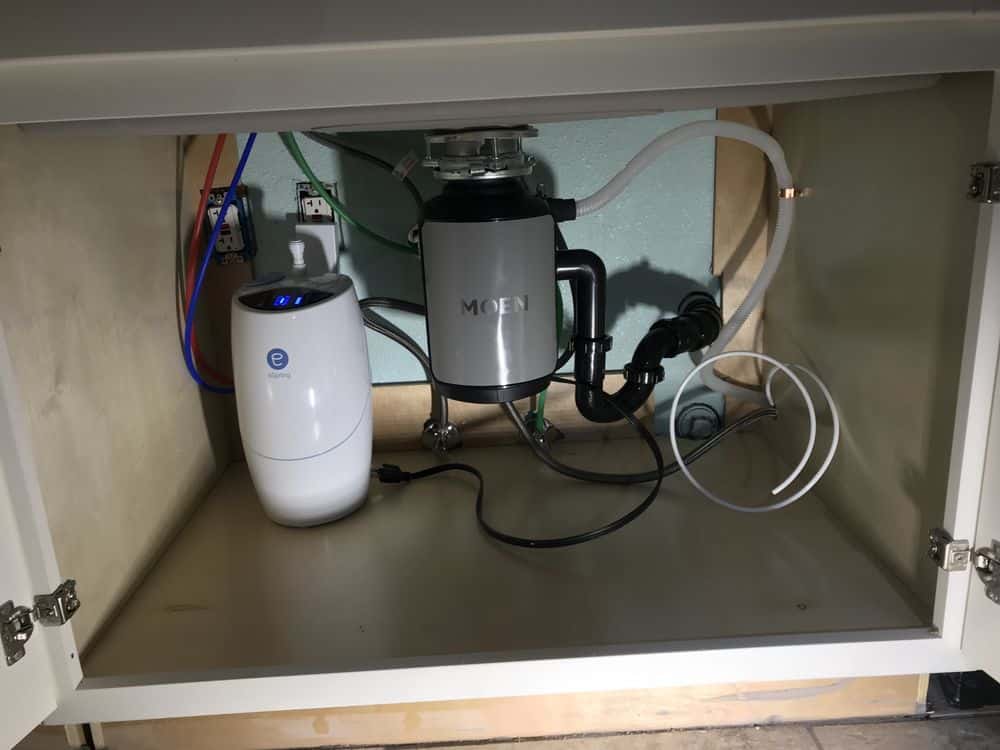Reliable Garburator Repair Solutions to Keep Your Kitchen Area Operating
Preserving an efficient garburator is critical for guaranteeing your kitchen runs without disruption. Common concerns such as blockages or unusual noises can disrupt this vital device, leading to possible trouble and expensive repairs. What are the key actions to protect against these concerns from rising further?
Usual Garburator Concerns
In many households, garburators are essential devices that promote the effective disposal of food waste. When this occurs, the garburator might cease or send out uncommon noises procedure altogether.
An additional problem frequently reported is insufficient drainage. This can originate from a buildup of food fragments within the system or plumbing, causing prospective backups and undesirable odors. Customers may additionally experience inconsistent grinding efficiency, where food waste is not properly grated, resulting in obstructions even more down the pipes system.
Electric issues, such as burnt-out electric motors or faulty wiring, can stop the garburator from operating effectively, necessitating instant focus. Comprehending these common garburator concerns can help home owners maintain their devices and guarantee effective procedure.
Basic Repairing Steps
When garburator issues arise, it's essential to take on the circumstance systematically to recover performance. Check the circuit breaker or fuse box to confirm that the garburator is not tripped or disconnected.
Following, take a look at for any type of visible blockages. Shut off the power and use a flashlight to check out the disposal chamber (Garburator repairs). If you see any international objects, very carefully remove them utilizing pliers or tongs-- never use your hands.
If the garburator hums however does not grind, there might be a jam. In this case, manually turn the impellers making use of an Allen wrench inserted into the base of the device. This activity can help liberate any kind of stuck debris.
Do It Yourself Repair Methods
A selection of DIY fixing techniques can successfully resolve common garburator problems without the demand for professional support. One widespread trouble is a garburator that won't transform on. Before thinking a malfunction, inspect the power source, making certain that the system is plugged in and the breaker is undamaged. If these are in order, check the reset switch located at the end of the unit, as pressing it can often solve the concern.
An additional regular issue is a garburator that grinds gradually or blockages. To address this, initially, turn off the unit and detach the power.
For unpleasant smells, a basic solution entails running citrus peels with the garburator. This not just refreshes the smell yet also aids clean up the blades. Regular upkeep, such as flushing the unit with hot water and ice dices, can keep the garburator in peak problem, sites ensuring it runs effectively for years to come.
When to Call an Expert
Determining whether to deal with garburator issues on your own or call a specialist can be difficult. While many small problems can be solved with standard DIY strategies, there are certain situations that necessitate expert treatment.

An additional critical factor is the presence of leaks. It's finest to get in touch with an expert to avoid more damage to your cooking area if you observe water merging around the base of your garburator or believe a falling short seal. Security is likewise vital; if you really feel awkward working with electrical elements or plumbing, contacting a professional is a sensible decision.

Upkeep Tips for Longevity
Guaranteeing the long life of your garburator requires regular maintenance and interest to detail. Normal cleaning is crucial; consider using a blend of ice cubes and crude salt to help displace debris and hone the blades. Running cold water while operating the unit will certainly also aid in flushing out food bits, stopping clogs and undesirable odors.
Furthermore, be mindful of what you take care of in your garburator. Avoid fibrous materials such as celery and onion skins, as well as starchy foods like pasta and rice, which can cause clogs. Rather, concentrate on little, soft food scraps to important source reduce strain on the unit.
Periodically evaluate the garburator's parts for deterioration. Make sure that the rubber sprinkle guard is intact and that the grinding chamber is devoid of build-up. Address these problems promptly to protect against more damage. if you notice any kind of unusual sounds or smells.
Lastly, consider running an upkeep remedy created for garburators to help damage down oil and odor-causing germs. By adhering to these upkeep ideas, you can considerably extend the life-span of your garburator, ensuring it continues to be a reliable component in your kitchen area.
Verdict
In conclusion, keeping an effective garburator is important for optimal cooking area performance. Regular inspections and standard troubleshooting can deal with usual problems effectively. Utilizing DIY repair service techniques, such as by hand revolving impellers or using baking soda and vinegar, can fix small clogs. Consistent troubles necessitate expert treatment to prevent additional damages. Following maintenance pointers will improve the long life and efficiency of the garburator, guaranteeing an efficiently running cooking area atmosphere.
Electrical issues, such as burnt-out motors or defective electrical wiring, can protect against the garburator from working effectively, necessitating instant interest. Comprehending these common garburator issues can assist homeowners maintain their appliances and guarantee effective operation.
A range of DIY repair work techniques can efficiently attend to typical garburator issues without the need for professional assistance. Garburator repair Toronto. Routine upkeep, such as purging the system with warm water and ice dices, can maintain the garburator in peak problem, ensuring it operates efficiently for years to come
If you notice water merging around the base of your garburator or suspect a failing seal, it's ideal to get more in touch with a specialist to stop additional damage to your kitchen area.